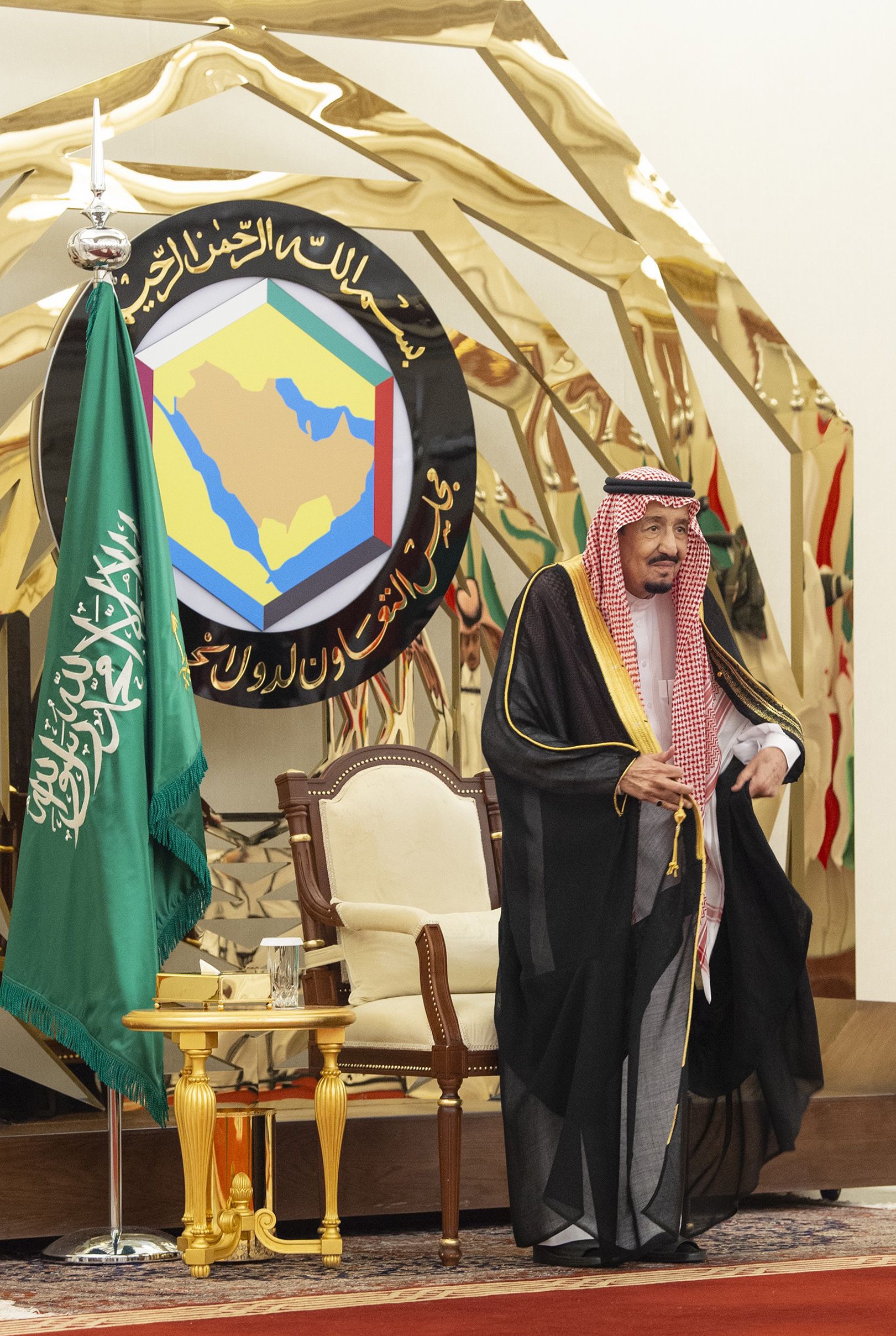The Persian Gulf Cooperation Council was established in 1981 and one year after Iraq’s Saddam Hossein invaded Iran. The move was taken to coordinate the policies of the six Persian Gulf states, namely Saudi Arabia, Bahrain, the United Arab Emirates, Qatar, Oman and Kuwait against Iran, with the support of the United States and Britain and, in general, the West.
During the eight years of the Iraqi imposed war, the six Persian Gulf states, in particular, Saudi Arabia, the United Arab Emirates, Kuwait, and Bahrain, donated $120 billion in aid to the Saddam regime. After the Iraqi invasion of Kuwait in 1990 and the end of Saddam’s imposed war on Iran (1980-88) the Persian Gulf Cooperation Council suffered a political division because Qatar, Kuwait and the Sultanate of Oman adopted a relatively moderate policy towards Iran, while Saudi Arabia, the UAE, and Bahrain continued their aggressive policies against Tehran. Over time, the disagreement between the six countries intensified because Saudi Arabia, as the largest Persian Gulf Cooperation Council member state, has sought to impose its policies on other member states.
Approximately four years ago, after Qatar’s blockade and physical confrontation between Qatar and Saudi Arabia over border disputes and the political differences between the UAE and Qatar, the Persian Gulf Cooperation Council was on the brink of collapse. Since 2017 and one year after Donald Trump took over the White House, the differences between Qatar and Saudi Arabia have intensified. The reason is that Trump intended to blackmail the six Persian Gulf Cooperation Council states, but Qatar did not give in to the extortion and as a result, Saudi Arabia was forced to pay $500 billion to the U.S. within the framework of arms and economic cooperation.
A political crisis occurred on June 5, 2017, after four Arab states led by Saudi Arabia severed diplomatic relations with Qatar. In contrast, Iran and Turkey voiced support for Qatar.
First, the four countries of Saudi Arabia, Egypt, the United Arab Emirates, and Bahrain led by Saudi Arabia cut off diplomatic relations with Qatar. After that, some Arab countries supported Saudi Arabia and cut off their ties with Qatar. The countries that joined Saudi Arabia were Libya, Yemen, Maldives, Senegal, Mauritania, Chad, Comoros, Niger, and Gabon, who joined the Saudi campaign against Qatar.
The disagreements between Doha and Riyadh greatly increased the gaps in the (Persian) Gulf Cooperation Council. The difference between the two sides also began with Saudi Arabia, the UAE and Bahrain, in cooperation with Egypt, imposed sanctions on Qatar due to Doha’s moderate policy toward Iran.
Meanwhile, the Omani kingdom, a major Persian Gulf Cooperation Council member has maintained its ties with Iran. Therefore, now the Persian Gulf Cooperation Council is scattered due to different categories and the gap between its members has intensified. But the United States and Britain have made every effort to maintain the identity of the Persian Gulf Cooperation Council vis-à-vis Iran.
On the other hand, disputes between the UAE and Saudi Arabia have also increased recently, like the UAE, without the coordination of Saudi Arabia, occupied the Socotra Island of Yemen and reduced its troop strength in the Saudi coalition. This led to an escalation of the dispute between the UAE and Saudi Arabia, where the UAE is now seeking to withdraw all its forces from the Arab coalition against Yemen.
Differences have also surfaced between the Sultanate of Oman and Saudi Arabia due to the close relations Oman maintains with Iran. Kuwait also has some political differences with Saudi Arabia, because Riyadh has always intervened in the Kuwaiti parliamentary elections, which has caused Kuwait’s dissatisfaction. In fact, Riyadh is trying to send Salafis and Wahhabis into the Kuwaiti parliament.
In the case of Syria, there are also differences between the countries of the southern coasts of the Persian Gulf; in this respect, Qatar was first aligned with Saudi Arabia but differences turned the alignment into a dispute. Now, Qatar, because of its close proximity to Turkey, has refrained from involvement in Syria and follows the Turkish government’s politics. The three countries of Saudi Arabia, the UAE and Bahrain have a similar view on the Syrian issue and want Bashar Assad to step down, but Kuwait and the Omani kingdom are not very involved in this issue.
Finally, it must be noted that the Persian Gulf Cooperation Council does not enjoy sufficient capacity for regional and international influence; but in spite of the ideological and political differences, especially in relation to Iran, the six countries under pressure from the United States and Britain have been forced to maintain the appearance of the Cooperation Council and cover-up differences.










0 Comments